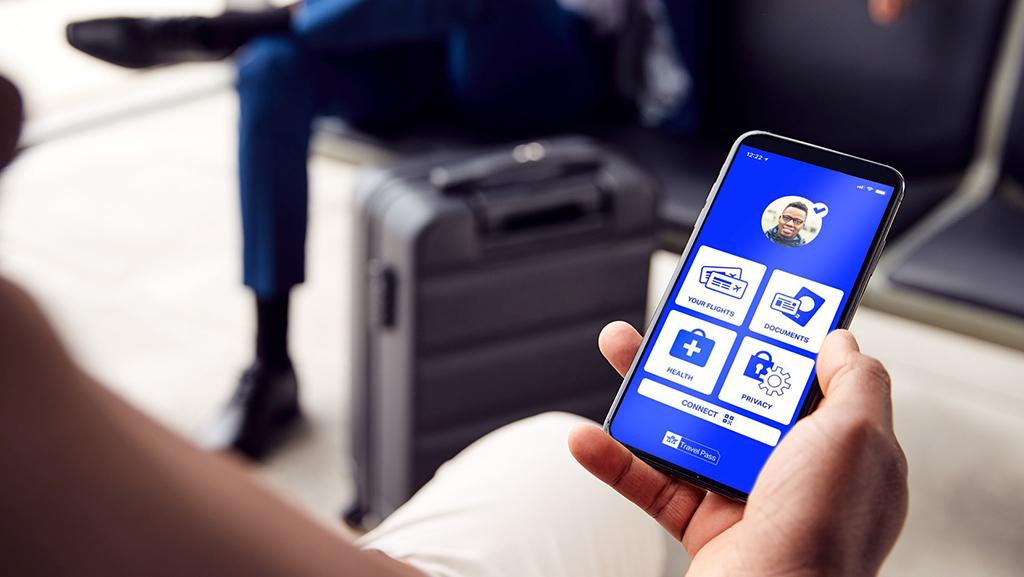
Biometric and digital technologies were becoming more widespread in air travel before the pandemic hit. Few travelers thought or cared about how their visa documentation was already with the immigration authorities of their destination country before they arrived; they just hoped for a speedy passage through the airport.
The coronavirus, however, has demonstrated how much governments still revert to paper documentation despite it being less secure, more open to fraud and far less convenient for travelers, airlines, and customs and border officials. A year after COVID-19 was declared a global pandemic, a paper test document was still the standard where such a test was required for travel, and some governments were insisting it had to be paper.
As vaccination programs rolled out worldwide, more initiatives were launched to enable proof of negative tests and proof of vaccination to be stored on mobile phones and securely shared with airlines and border authorities. It’s a slow process, with many governments still hesitant to establish the global standards that are needed to determine mutually recognized protocols. Concerns are being raised about how “digital passports” could be discriminatory, creating a divide between those who are vaccinated and free to travel and those who are not. The term “digital passport” is therefore often being avoided. But in the end, a digitalized health travel system could be the spur to broaden contactless travel for almost every traveler.
As of early March, IATA was working with some 20 airlines on trials of its Travel Pass digital system and talking to about 20 more that had requested participation. The pilot program began in December with Singapore Airlines, which moved to a full-scale test in mid-March on Singapore-London flights.
Travel Pass is based on the Timatic system that IATA uses to enable airlines to acquire verification that passengers have the correct immigration documents, such as visas, before flying and can share that verification with the relevant immigration authorities. Travel Pass does not have a central database, thus avoiding data privacy infringements.
This means that Travel Pass does not need governments to come onboard for it to work, but government backing is critical in terms of setting standards for testing and approving lab networks as well as recognizing the app as a valid and secure proof of a negative test and/or vaccination.
The Travel Pass app will be free to passengers, who will be able to download it onto their smartphones and register their personal details and flight itineraries. The app will show them the health documents they need for their journey and provide them with a list of government-approved labs that have partnered with Travel Pass. The passenger’s identity is verified on the app by scanning a QR code and taking a photo, after which the test sample is collected and submitted to the lab. The test result is sent directly to the passenger. If negative, the app updates the passenger’s flight itinerary with a check mark. The passenger can then elect to share the full test results with the airline, which would permit a contactless check-in process.
The public seems enthusiastic for such a system. An IATA survey this year indicated that four of five respondents would like to use this technology as soon as it becomes available. Those polled also said they expected travel health credentials—vaccine or test certificates—to comply with global standards.
“While we are making good progress with numerous trials, we are still awaiting the global standards for digital testing and vaccine certificates. Only with global standards and governments accepting them can we maximize efficiency and deliver an optimum travel experience,” IATA director general and CEO Alexandre de Juniac said.
IATA SVP airport, passenger, cargo and security Nick Careen summed up the situation more bluntly. “There has to be global standards. Each day without them means the challenge gets bigger,” he said. As people return to air travel on the basis of being able to prove they have had a negative COVID test and/or have been vaccinated, depending on paper proof of those credentials will lead to “miles long queues at airports,” he said.
Other digital health verification system in the works include a European Commission (EC) initiative called the Digital Green Pass that is expected to be presented as a legislative proposal in March. The focus of Green Pass would be to facilitate easier travel within European Union countries, although the EC has indicated that it could also coordinate standards and create a platform to connect to different national solutions.
China, meanwhile, announced its own version of a digital health certificate in March that would be powered by WeChat, one of China’s most widely used messaging applications. The system is currently only available to Chinese nationals, but Beijing is in talks with other governments to develop a mechanism to facilitate cross border movements.
Several airlines, including American Airlines, British Airways and United Airlines, have launched their own mobile health passport systems that enable COVID tests to be stored digitally. Some companies, including IBM, have similar initiatives.
IATA’s view is that any initiative that helps promote a digital framework for travel health verification is welcome provided global standards are set and interfaces work.
The need to prove that a vaccination and/or test has occurred before travel should be necessary only for as long as the coronavirus is a global threat. But if done right, the technology to verify and share required documentation could mean the end of long queues and congestion at airport arrivals.

